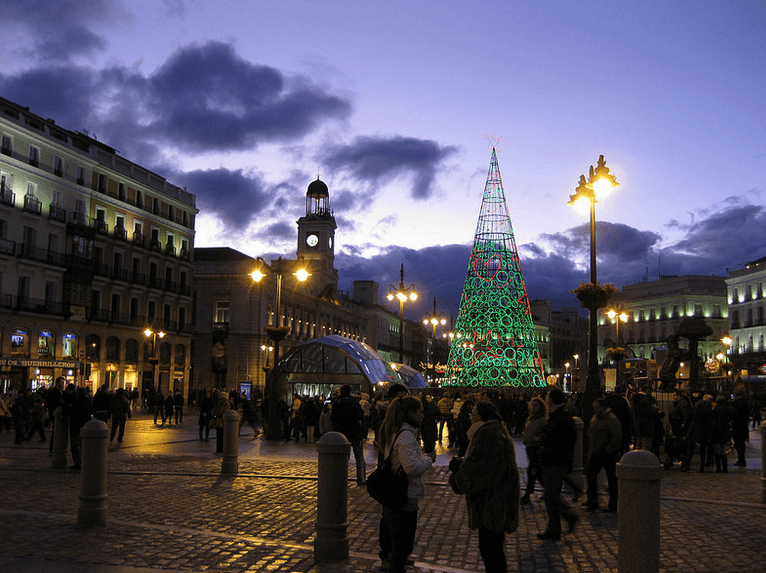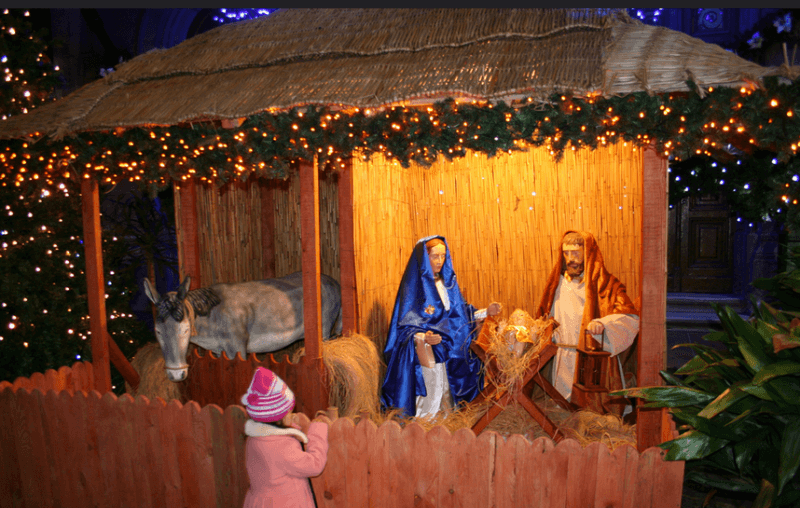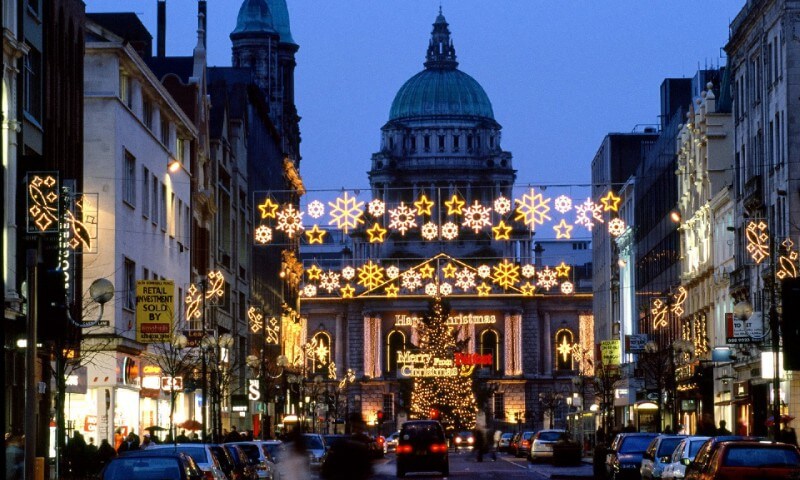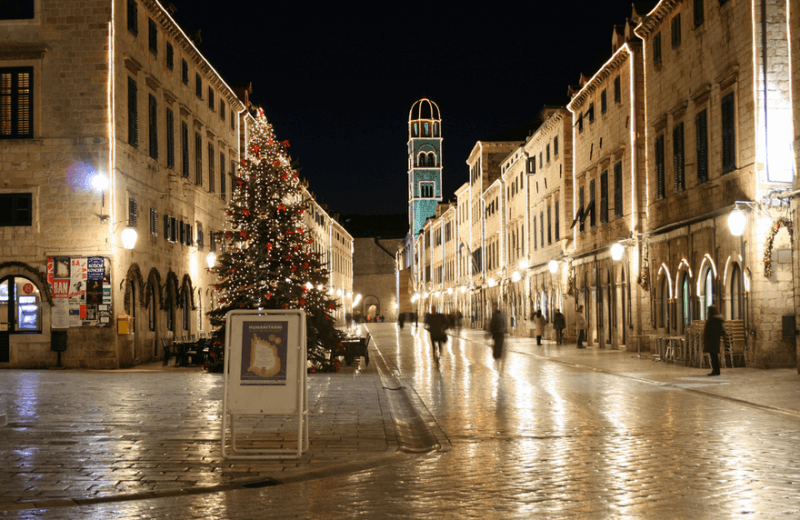Christmas in Spain
Rating: 8,5/10 (2049 votes)  As in any other Catholic country, in Spain one of the most important holidays is Christmas. Of course, its celebration also includes visiting churches with the singing of masses, but the Spaniards also have their own characteristics and traditions. Despite the fact that this holiday, nevertheless, is considered a family holiday among the Spaniards, it is preceded by two weeks of noisy festivities: restaurants and bars are packed with campaigns from friends and colleagues celebrating Christmas Eve. At work, Spaniards tend to give gifts. Often these are Christmas baskets, which include the staples for the holiday table. The larger firms organize banquets and buffets.  Madrid for Christmas One of the most important Christmas events is the grand lottery. A lot of Spaniards participate in it, who believe that this year they will get the biggest winnings. The numbers of the winners and the size of the prize are taken out by children, and the numbers from the tickets are singing. This lottery is one of the largest in the whole of Europe. The results are announced on the morning of December 24, and the whole of Spain is waiting for them with bated breath on their TVs. Christmas traditions in SpainDespite the fact that the Spaniards in their mentality belong to the classical West of Europe where it is not customary to celebrate for a long time, Christmas is a pleasant exception. They begin to prepare for it in Spain at the very beginning of December, when grandiose holiday sales and festivals are held throughout the country. And yet, the ceremonial start of Christmas in Spain is Christmas Eve, as in other Catholic countries, celebrated on December 24th.  Street in Madrid for Christmas December 24No matter how paradoxical it may sound, the devout Spaniards, even on Christmas, were able to preserve a piece of pagan pre-Christian beliefs, which is very clearly visible on Christmas Eve. Now these traditions are being supplanted by globalization and fashion, but in the Spanish outback, you can still observe very interesting elements of the holiday. For example, in Catalonia, the character Cagatio was invented - a living log, which is painted with a face, sometimes with a beard, and it is placed on 4 twig legs. It is customary to decorate one of the bedrooms in the house with logs, and so that it does not freeze, a fabulous guest must be covered with a warm blanket, and a soft pillow should be placed under the"head". Important: Connected with the log Kagatio and others rituals. For example, this character may well start playing naughty and “steal” all the sweets from the house. If this happens, the children receive a club from their parents, which must be severely punished by Kagatio. Well, while the child enthusiastically beats the log, mom or dad needs to very quickly return the treats to the festive table.  Kagati Christmas carols - villansikos will be especially bright on Spanish Christmas Eve. It is no longer accepted to sing them in the city, but in the villages of Andalusia and other regions, children still dress up in a variety of costumes, walk around neighbors, and beg for gifts in exchange for short songs with wishes of love and well-being next year. December 25Christmas morning in Spain begins with divine services. On the night of December 25, Rooster Masses are performed in all Spanish churches. According to one of the biblical legends, the rooster became the first animal in Bethlehem to learn about the Birth of the Savior, and woke up the rest of the animals with its singing. Now, in honor of this legend, all of Spain sings holy hymns every year. After returning from the temple, you must set the table. The main dish in Spain is Christmas turkey, only here it is usually served with mushrooms. In addition to poultry, in the houses of the Spaniards you can see a lot of seafood, sweets, as well as Arabic dishes that came from the era of the Moorish yoke.  Christmas turkey The Spaniards call not only close relatives, but all neighbors to the table ... Even if a person has nothing to give to the owner of the house, he is still invited and fed as the most dear guest, because everyone is equal before God, regardless of income. Important: Another special Spanish the construction of the Belens is a tradition - these are figures that depict the scene of the birth of Christ. Miniatures can be found both in private houses, when decorating tables, and in shop windows, on city streets and squares. Moreover, sometimes the matter is not limited to figurines; in large squares you can meet live actors who stage scenes of the Birth of the Savior. In Granada and some other regions, another pagan ritual has been preserved, combined with the celebration of Christmas. It is called Hogueras - solstice, if in Russian. On the shortest day of the year, suburban areas are lit up with flames of bonfires to jump over. This ritual, similar to Slavic beliefs, cleans from damage and protects from ailments.  Christmas Belens January 5thThe Spanish 12-day Christmas break ends on January 5th. On this day, it is customary to celebrate the Catholic Epiphany. In terms of its significance for the Spaniards, this holiday can be compared only with the Christmas night itself, and in scope - with the main holidays of the country. The celebration begins in the morning, when solemn processions take to the streets of cities. In fact, these are a kind of Christmas parades, in which both adults and children take part. Musicians can walk ahead, or ordinary residents of the city can walk, but the procession is always closed by three actors who play the roles of the three wise men who came to the baby Jesus in Bethlehem. By the way, the wise men in Spain are called wizards- kings, and they, according to tradition, bring gifts to children, on the day of the Epiphany, and not on Christmas or New Year's Eve. Before the holiday, Spanish children, just like ours, write letters with the most cherished desires, what they would like to receive this year. Instead of socks for a welcome gift, children prepare boots with straw polished to a shine. Shoes must be put outside the door of the house, where one of the kings will definitely come and hide the gift in the straw. As usual, a piece of coal is given to disobedient children. But, in order not to finally upset a restless or guilty child, the wise Spaniards came up with the idea of making coals from candies, and the child himself receives a gift from his parents.  Royal bagel Important: To please immortal kings, the Spaniards before the night of Epiphany write in chalk on the doors" KMB" (Caspar, Melchior and Valthazar) - the initials of the names of the three wise men. The chalk must be consecrated in the temple and in no case thrown away, until crumbs are used up. The main dish at Epiphany is the royal bagel. Each family has its own cooking traditions - it can be one large unleavened roll, many small traditional bagels, or a huge sweet cake with a hole in the middle. It is customary to put coins in a bagel for good luck, as in many other European countries. Whoever gets a piece with a coin will be lucky all year long, the main thing is not to lose the treasure. It is with the last festivities on the Epiphany that the Christmas holidays end in Spain, and the next day all shops and other establishments begin to work on regular schedule. The main dish at Epiphany is the royal bagel. Each family has its own cooking traditions - it can be one large unleavened roll, many small traditional bagels, or a huge sweet cake with a hole in the middle. It is customary to put coins in a bagel for good luck, as in many other European countries. Whoever gets a piece with a coin will be lucky all year long, the main thing is not to lose the treasure. We also recommend reading Visigothic Museum in the Church of Santo Amaro (Igreja de Santo Amaro) description and photos - Portugal: Beja Topic: Christmas in Spain. |




